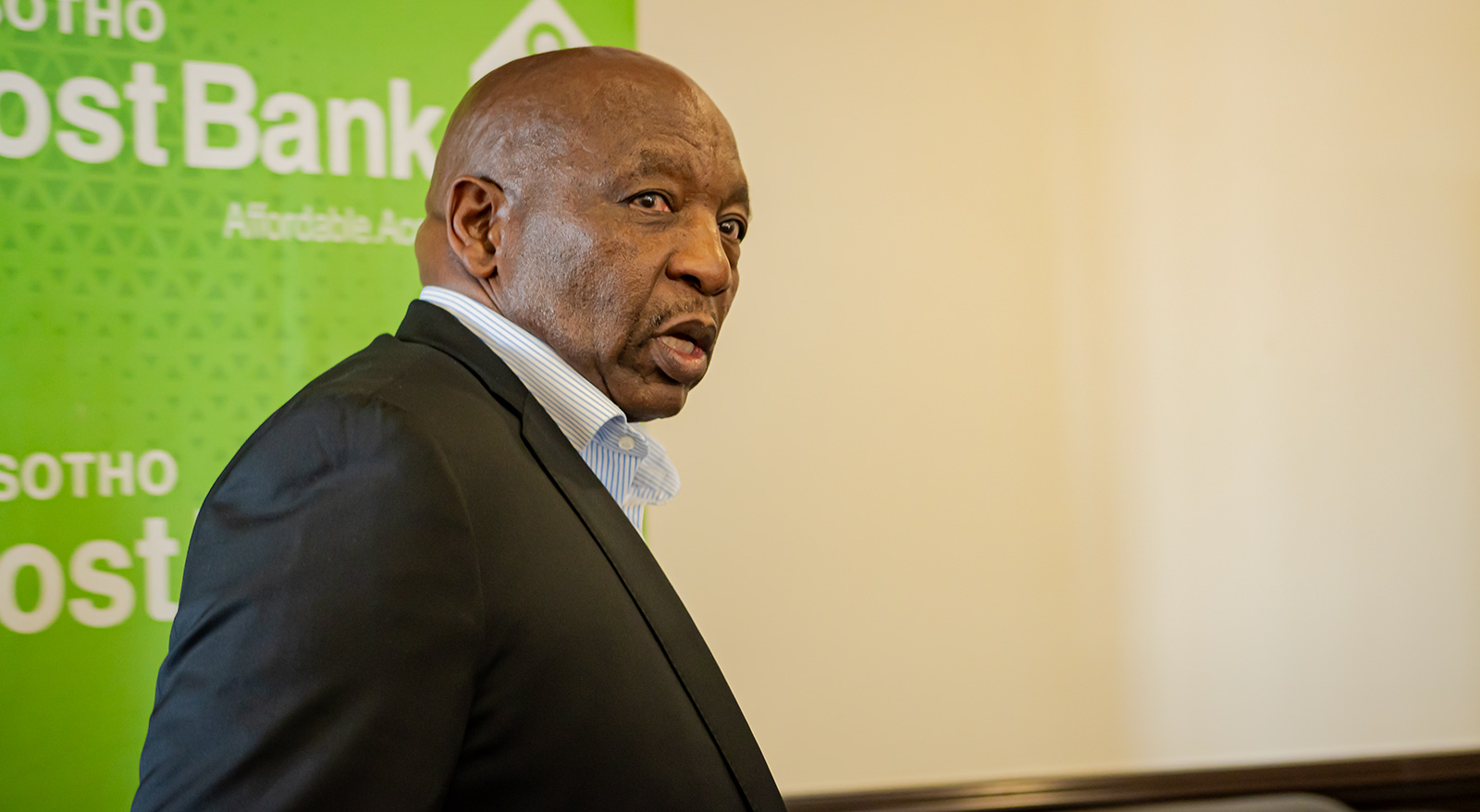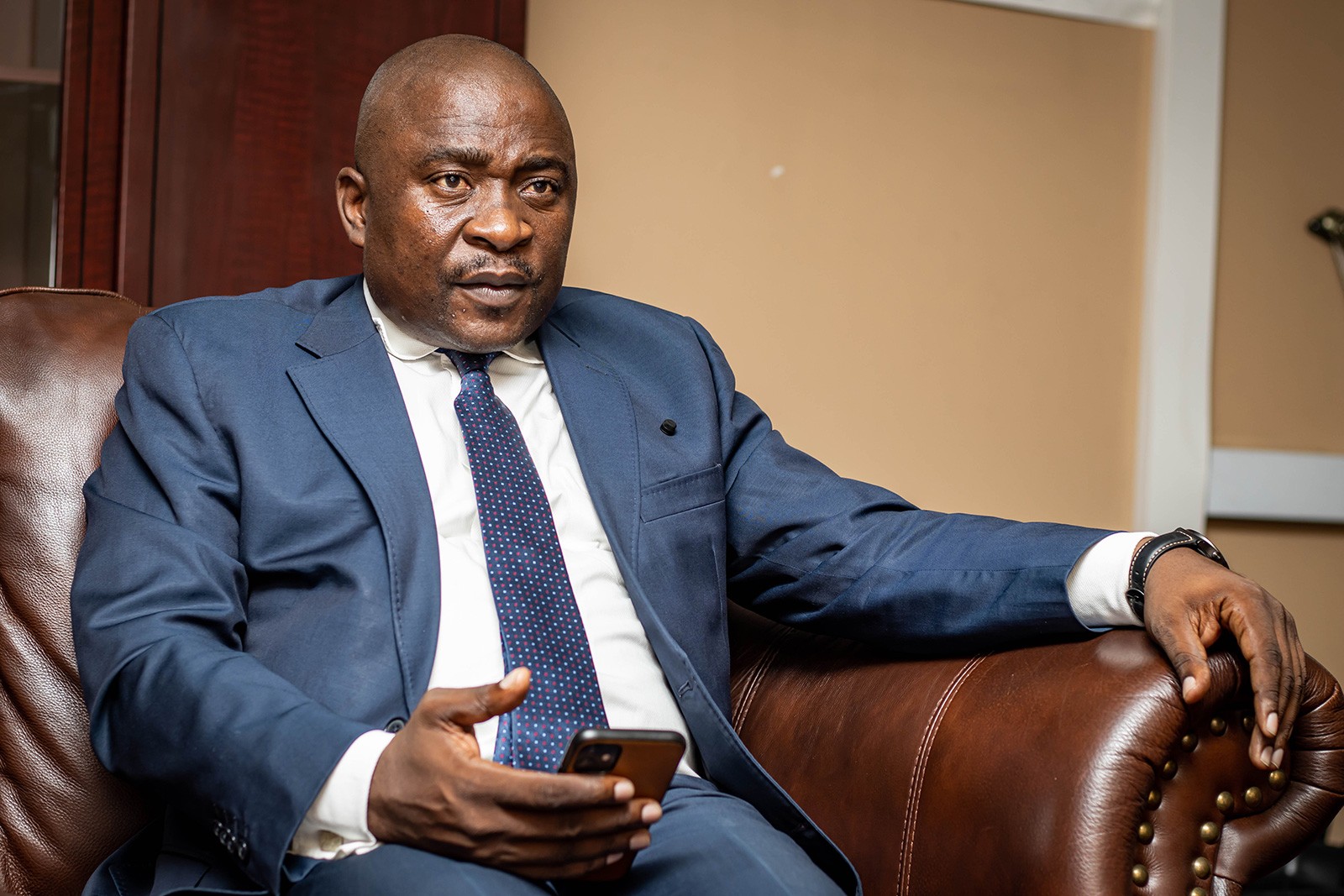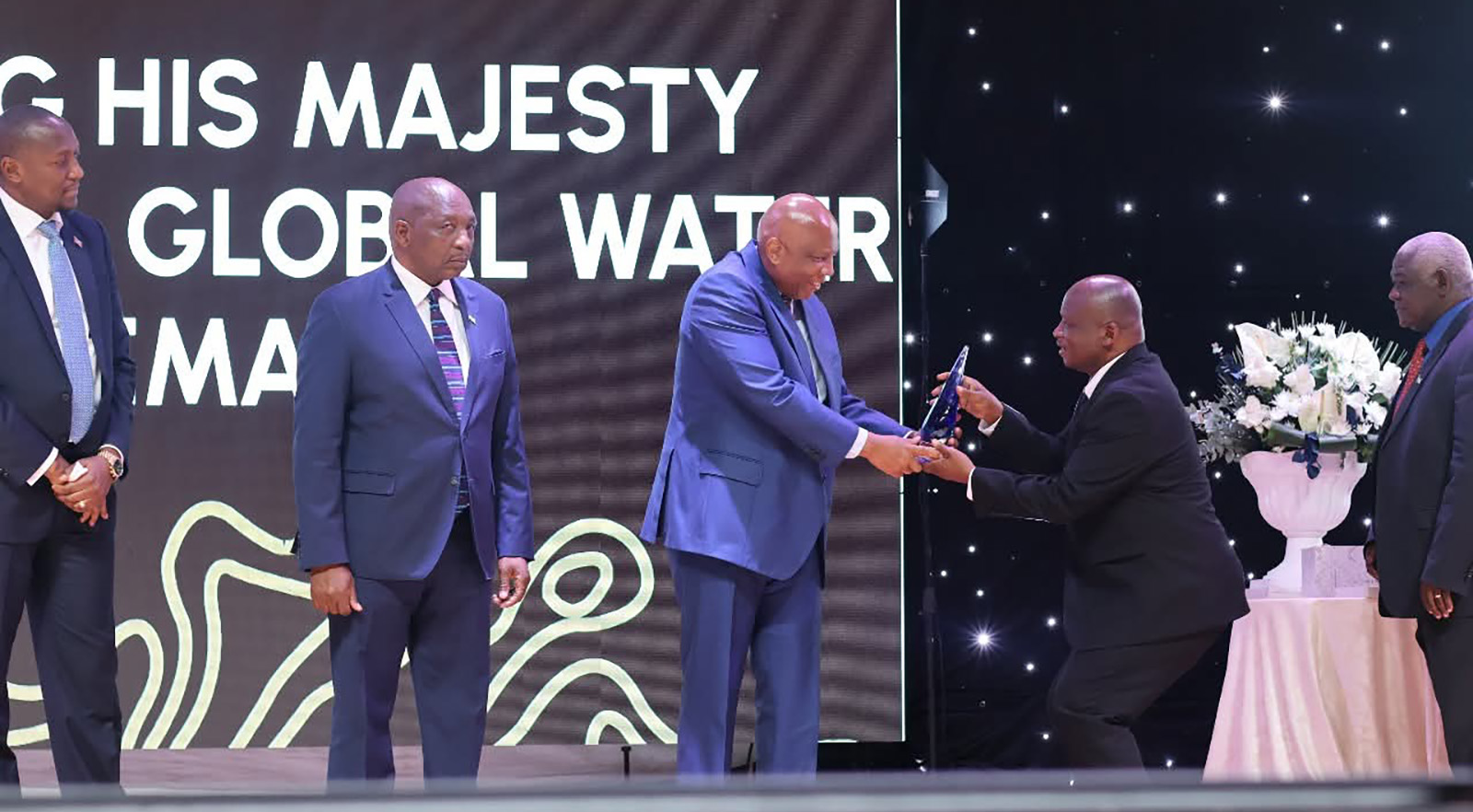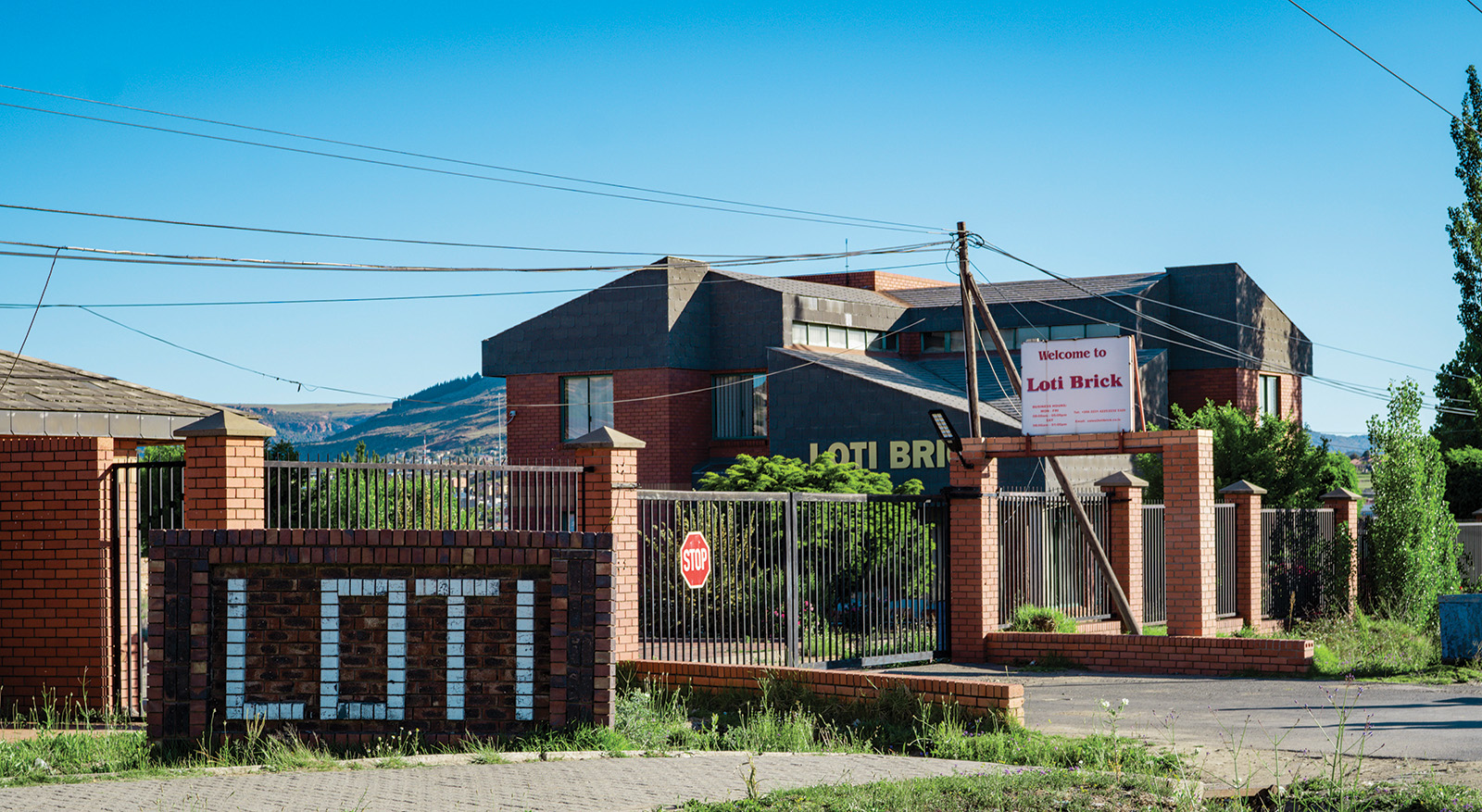Lessons from China that could drive Lesotho’s modernization drive and aspirations

SHARE THIS PAGE!
Silence Charumbira recently in China
Lesotho, like the rest of Africa, is being represented at the ongoing Beijing Summit of the Forum on China-Africa Cooperation (FOCAC). Its top officials, including Prime Minister Samuel Ntsokoane Matekane, are attending and are among others, discussing bilateral cooperation with Chinese leaders at the summit.
The summit marks the beginning of a new FOCAC session, one that should help Africa; and indeed Lesotho, refocus its developmental agenda while taking lessons from China.
And in his keynote speech at the opening of the Summit on Thursday, President Xi Jinping set the ground for enhancement of relations and taking them “to the level of strategic relations”.
“Thanks to nearly 70 years of tireless efforts from both sides, the China-Africa relationship is now at its best in history. With its future growth in mind, I propose that bilateral relations between China and all African countries having diplomatic ties with China be elevated to the level of strategic relations, and that the overall characterization of China-Africa relations be elevated to an all-weather China-Africa community with a shared future for the new era,” President Xi said.
I recently visited China for the first time from July 23 to August 10. The trip gave me a new view of China that I doubt anyone who has never visited the country would have. Even some who visited a decade ago will barely recognize the country if they were to visit now.
That visit helped me appreciate China’s way of doing things and the emphasis on efficiency. While Chinese nationals and government officials will maintain, with modesty, that China is still a developing country, the country is now at the very top of the list of developed countries.
It is essentially one of the most developed countries in the world and also one of the most modernized. And President Xi’s speech lays a solid groundwork for cooperation between Africa and China towards modernization that will benefit Africa the most. He said: “Modernization is an inalienable right of all countries. But the Western approach to it has inflicted immense sufferings on developing countries. Since the end of World War II, Third World nations, represented by China and Africa countries, have achieved independence and development one after another, and have been endeavoring to redress the historical injustices of the modernization process. As we are about to celebrate the 75th anniversary of the People’s Republic of China, we are going all out to build a great modern socialist country in all respects and pursue national rejuvenation through a Chinese path to modernization. Africa is also awakening again, and the continent is marching in solid strides toward the modernization goals set forth in the AU’s Agenda 2063. China and Africa’s joint pursuit of modernization will set off a wave of modernization in the Global South, and open a new chapter in our drive for a community with a shared future for mankind.”
These profound words coming from the leader of the world’s second largest and fastest developing economy set the trail for us to take lessons from which Lesotho and its African peers can draw inspiration and more importantly take templates to possibly implement tangible developmental problems.
And my hope is that Lesotho leadership takes; and takes seriously, and start refocusing the kingdom’s development agenda just like President Xi said in his speech: “We should jointly advance modernization that is just and equitable. In promoting modernization, we should not only follow the general rules, but also act in light of our national realities.” The theme for FOCAC is: “Joining Hands to Advance Modernization and Build a High-Level China-Africa Community with a Shared Future,” fostering friendships, discussing cooperation, and envisioning the future together. China’s development has been fast because the leadership has set objectives that have received buy-in from all the citizens and the national agenda takes precedence in all circumstances.
And that is what any country that has developed has done. There is a certain way the Chinese think and act and you will not change it even if you were to meet them on Mars. Below are some of the key lessons and pointers that Basotho can learn from China:
Rule of law and social cohesion:
Crime is one of the biggest challenges that Lesotho is facing right now. Crime is spiking and there seems no end to the culture. Several studies have concluded that fence sitting by investors has been caused by, among others, the high crime statistics. As a result, there is so little foreign direct investment. And the country remains a consumer of goods from bigger economies like neighbouring South Africa from where we import everything, including some of the simplest and basic fresh produce that we could otherwise be exporting. As of 2017, when I first arrived in Lesotho, the kingdom was importing M7 million worth of cabbages. By my estimation, if nothing has changed, Lesotho could be importing about M12 million worth of cabbages from South Africa annually, if not more.
With adequate planning, support, astuteness, crime prevention efforts, Lesotho could get the much-needed foreign direct investment and channel it towards agriculture so that it becomes self-reliant at the least and an exporter of food. For this to happen, crime must be addressed. Yes, the current government has made strides to fight crime but a much more robust, aggressive, dynamic and holistic approach will do the trick.
In this regard, Lesotho can borrow a leaf out of China’s book; China gives you parallels. A great deal of that vast country is under camera surveillance. While liberals would want to think it intrusive, whenever a crime is committed, it takes minutes to locate the offender and bring them to book. Citizens respect order. Police officers do not have to chase after people to ensure that they follow simple laws. You don’t see litter on the streets and when people set to clean, they do it with utmost honesty.
As a result, China has one of the cleanest streets in the world. It is one of the most orderly societies. When an elderly man or woman or a mother with a young child or a pregnant woman enters a bus or a train and there is a young man or woman sitting on the courtesy seats, they do not have to be asked to make way. There are so many cars on the roads. The number of bicycles and motorcycles is just as humongous. But the number of accidents is so low. And no one drives like a maniac even when they have targets to meet.
When a driver breaks the laws of the road, no one has to chase after them. No one has to go to their house. In 99% of the cases, they do not even need to go to the police station. Instead, the state just penalizes them by garnishing money from their bank account. There is no opportunity to bribe anyone. At the end of the day, everyone drives in the most civilized manner.
Energy
Energy is one of the biggest challenges for both developed and developing countries. In Lesotho, the situation is so dire for some rural communities that they rely on animal dung for energy. In the highlands, like Mokhotlong where the temperatures are so low, the need for energy is higher. Some of the villagers are poor and cannot afford any other forms of energy besides dung or firewood. And that is where the problem starts. In a time where the world is speaking renewable energy to combat climate change and global warming among other deleterious phenomena, it would make more sense to be abandoning the use of firewood as a source of energy. But for villagers in Mokhotlong, what is the option when they can neither afford gas nor solar?
I was pleasantly surprised to know that in the China, they no longer use firewood for cooking. If there are some who are still using firewood, then the numbers are negligible. The majority of the country has access to electricity and most people use gas for cooking. This has helped China save trees.
The green spaces that cover China are insurmountable. In fact, China boasts the largest eco-city development programme in the world. In Harare, Zimbabwe, over a decade ago, activists fought with council when the city fathers[S1] decided to chop down decades old trees for road construction. Council eventually won and the trees were chopped down. Council planted “replacements” but those trees have long died now. In most African cities, no one cares about trees. Trees belong in the rural areas.
The number of trees in China is staggering and the benefits of having those trees are already being felt. Those who went to China 10 years ago and beyond say when they travelled, they were told to wear mask in China because in most cities, the air was always polluted. Fast forward to 2024, masks are either worn voluntarily or because of ill-health. It is no longer a necessity. China planted trees to clean its polluted air that was loaded with industrial fumes. Now the air is clean.
Comparatively, Africa is now hotter than it was two decades ago. Droughts are more frequent and more vicious. Floods are more common. Extreme weather patterns are more regular. In Lesotho, land degradation is in overdrive. The lands are bare and flooding has become normal. Soil nutrients are swept away by flood waters and wind while water retention is poor and affects plant growth. The rivers don’t retain water as they are chocking with silt while construction on wetlands and overgrazing are the order of the day.
In China, the forests that I am talking about started just two decades ago and their aim is to plant 70 billion trees by 2030. The ultimate goals for China’s reforestation efforts include achieving environmental restoration, combating environmental challenges like deforestation, desertification, as well as air and water pollution.
All citizens respect the policy and stiff penalties are imposed for flouting the regulations. If in Lesotho, and indeed other African countries, people stop chopping down trees with reckless abandon, then green transitions are easy to start. For a country like Lesotho, with just around 2,2 million people, getting alternative energy for citizens is doable. Lesotho has an abundance of natural resources that it can take advantage of in the same fashion that China has. Among these is the over 300 days of sunlight that can be harnessed for solar energy. To attract the necessary investment, we must deal with many issues, among them crime.
A smaller number is definitely easier to turn around. What is Lesotho’s 2,2 million people compared to China’s 1,4 billion people? The blueprint is available to show how China achieved what it has achieved and we can draw inspiration from that. One can tell why and possibly how China has achieved this from President Xi’s words: “We should jointly advance modernization that is eco-friendly. Green development is a hallmark of modernization in the new era. China is ready to help Africa build “green growth engines,” narrow the gap in energy accessibility, adhere to the principle of common but differentiated responsibilities, and jointly push for the global transition to green and low-carbon development.”
Infrastructure development and transport
China has one of the best railway infrastructures in the world. I arrived in Guangzhou on the 23rd of July 2024 needing to take a connecting flight to Changsha later that evening. I missed my flight and had to sleepover. The next available flight was only leaving at 4pm the next day. So we thought we should take a train. We took the morning train and three hours later, we were in Changsha. This is a distance of 1,434 kilometres by road. Maseru to Mokhotlong (291 km) is about five times less than that distance. But it takes many the whole day to travel from Maseru to Mokhotlong. Other journeys from Changsha to Chenzhou and to Beijing were meant to have been by air but we chose train. The trains are clean, spacious and equally comfortable. Even better, there was no limit to the weight of our luggage. The trains are fast. I remember one going up to 378 kilometres per hour. The other advantage is that when you are travelling by train, you get to see the countryside and appreciate the leaps that China has taken in its development.
Besides the speed, the comfort in the economy class is better than that of an economy class flight. The train station infrastructure, even in smaller cities, is much grander than most of the airports that I have been to in Africa.
China recently launched the Shanghai Maglev train which has a top speed of 460 kilometres per hour. This speaks to futuristic planning that is in synch with the needs of citizens. It will take developed countries several years to launch similar projects. And all this while, China will enjoy first mover advantage. They will not stop too. More technology will be unleashed onto the market in the near future.
When you board a train, you do not use cash. No one has to queue in front of a cashier or conductor. Everything is automated. A good number of the trains are also self-driven.
Shanghai Metro, for instance, is the world’s second longest totaling 826 km. It has a staggering 508 stations across 20 lines. A distance of 3km costs one just 3 RMB or M7,47. For distances less than six kilometres, one pays just 3 RMB and an additional 1 RMB for every additional 10 kilometres.
For road transport, China has achieved the unthinkable in recent years. In 2001 when China launched its 863 EV project and went on to launch its Industrial Development Policy in 2004. And now, almost 8% of all cars on Chinese roads are electric including buses. It is estimated that by 2030, 40% of all vehicle sales would be electric.
There are also many other aspects in which Lesotho can draw inspiration from China. For example, China has lifted more than 800 million people out of extreme poverty. This has been the largest global reduction in inequality in modern history. If the same were to take place in Lesotho, it would be unstoppable.
In conclusion, during this FOCAC Summit, Lesotho can endeavour to use China as a benchmark/blueprint for the potential that it holds in alleviating poverty and pursuing economic development. Towns in Lesotho can start twinning with cities in China that are developing fast so that it can also speed up its development. We surely can learn a lot and improve the lives of our people by twinning one of our towns with a city like Luoyang, in Henan Province. Of course, there are several countries elsewhere that we still can learn from but I think China’s story is more relatable for several African countries. It was regarded poor just a few decades ago and now it is the world’s fastest growing economy. The clarity of vision in President Xi’s keynote speech is impeccable.
“The Partnership Action for Connectivity. China is prepared to carry out 30 infrastructure connectivity projects in Africa, promote together high-quality Belt and Road cooperation, and put in place a China-Africa network featuring land-sea links and coordinated development. We are ready to assist in the development of the African Continental Free Trade Area, and deepen logistics and financial cooperation for the benefit of trans-regional development in Africa,” President Xi said.
It is my hope that the visions laid out in President Xi inspire action and greater focus on planning and achieving results.
- Silence Charumbira is an experienced journalist who has worked with several renowned news platforms like The Guardian, CNN and AP. He is the Managing Editor of Africa News 24 and he writes here independently. Silence can be reached on sekecharu@gmail.com.
[S1]City councils are called city fathers.

Maseru man fined M1,500 for theft
4 days ago
Govt disbands assets recovery task team
5 days ago

Lesotho celebrates World Ozone Day
6 days ago
Mahase praised for professional leadership
7 days ago
King Letsie III receives global water award
7 days ago


Ex-Loti Brick workers left in the lurch
9 days ago